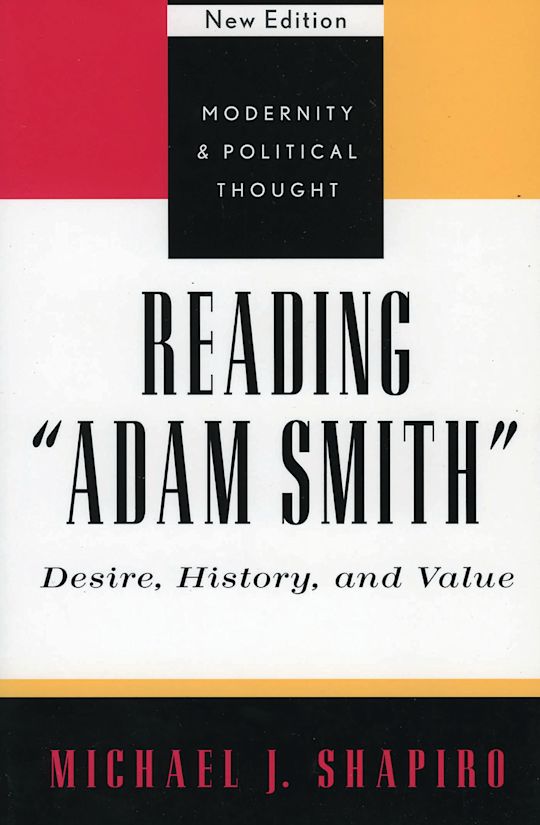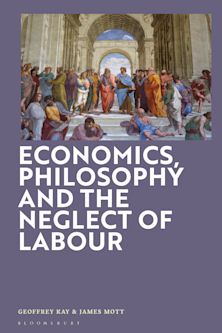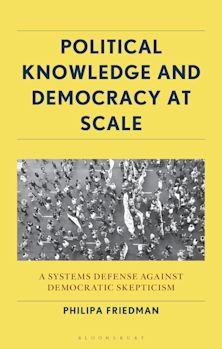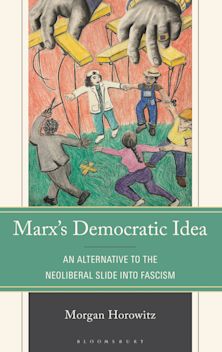- Home
- ACADEMIC
- Philosophy
- Social and Political Philosophy
- Reading 'Adam Smith'
For information on how we process your data, read our Privacy Policy
Thank you. We will email you when this book is available to order
You must sign in to add this item to your wishlist. Please sign in or create an account
Description
At last a study of Adam Smith that fills a large hole in the historical literature of political theory. This innovative volume, by Michael Shapiro, is not about Adam Smith in the sense in which 'about' is usually understood, for it is neither a comprehensive explication of his views nor a careful tracing of the sources of them. Instead it is a confrontation. This is a book about modernity whose vehicle is a reading of Adam Smith-it is an enactment of the convention that despite the contribution Smith made to creating and legitimating the conceptual space for modern, commercial, liberal, and democratic society, his views are inadequate for those who want an effective, politicized understanding of the present. Shapiro's ultimate goal in this examination is to 'exemplify a way of doing political theory-one that challenges some traditional ways of constructing and celebrating the 'political theory cannon.''
Table of Contents
Chapter 2 History and Value
Chapter 3 The Social Bond
Product details
| Published | 03 Apr 2002 |
|---|---|
| Format | Ebook (Epub & Mobi) |
| Edition | 1st |
| Extent | 176 |
| ISBN | 9781461715078 |
| Imprint | Rowman & Littlefield Publishers |
| Series | Modernity and Political Thought |
| Publisher | Bloomsbury Publishing |
About the contributors
Reviews
-
Not a book for Smith beginners nor likely to satisfy Smith devotees, Reading "Adam Smith" offers rich, scholarly, and provocative relocation of significant controversies in contemporary theory. Premised on the notion that "Adam Smith" is an important player in contemporary political discourse, Shapiro's book is less a close reading of Adam Smith than a late modern meditation on the problems of sovereignity, history, value, subjectivity, the real, and the nature of the social bond. Erudite and economically written, this book contributes significantly to the effort to navigate the murky seas of late modernity.
Wendy Brown, Class of 1936 First Professor of Political Science, University of California, Berkeley
-
Michael Shapiro's Reading "Adam Smith" is a masterfully au courant dismantling of the linguistic conventions governing the constitution of subjectivity in modernity. Through a confrontation between the notion of sovereignity and the symbolic practices of exchange, Shapiro exposes the conceits that structure Smith's moral philosophy and political economy. But more than that, Shapiro deploys an impressively wide range of semiological, dialogic, phenomenological, and deconstructive theories to argue that Smith's texts are themselves constitutive of and constituted by the orders of sovereignity and exchange that characterize modernity and enforce particular subjectivities. Drawing on Lacan and Foucault, Shapiro goes on to offer a postmodernist conception of the malleable self that disrupts and transgresses these orders. The result is a book that itself disrupts and transgresses academic orders. This 'turning down' of disciplinary boundaries is long overdue and very welcomed.
Nicholas Xenos, University of Massachusetts, Amherst
-
Shapiro invites his reader not to be interpolated by Smith's opus. [His] Smith is refractory and dissolving. Shapiro does not merely interpret texts, but reads them actively. There is an emphatic clarity and a lack of nostalgia.
Diane Rubinstein, Journal of Politics



































